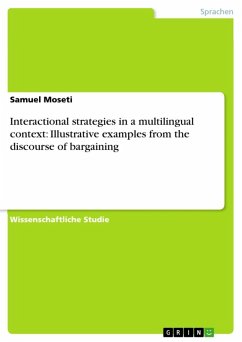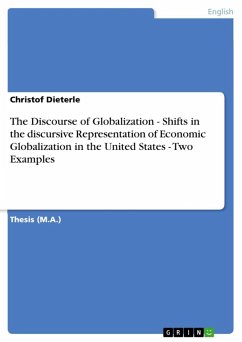Wissenschaftliche Studie aus dem Jahr 2006 im Fachbereich Sprachwissenschaft / Sprachforschung (fachübergreifend), , Sprache: Deutsch, Abstract: ABSTRACT This paper discusses some of the transactional strategies that the interactants use in the market discourse. The paper discusses the role of Kiswahili in the discourse of bargaining in the market place. The authors draw the corpus data largely from open-air market negotiations in investigating certain strategies which are unique to Kiswahili. The paper explores the place of Kiswahili in the multilingual East Africa where it enjoys the status of a lingua franca and is largely used in transacting businesses and related activities. the paper unearths the underlying tact that the market interactants use to cooperate and collaborate vis-à-vis their mutually motivated goals. The interacting partners collaborate in accomplishing certain tasks consonant with the needs of the discourse situation. Code-mixing is one such strategy that is discussed in this paper and is thereby explicated as a sociolinguistic phenomenon which is occasioned by certain interactional needs. Code-mixing is explicated as a creative aspect of language through which the interlocutors blend linguistic units and structures from a variety of languages, including English, so as to code the message they want to convey in light of the dictates of the discourses in question. Other strategies that are discussed in this paper include honorifics, face and politeness strategies, collaboration and humour. In conclusion, the authors argue that the various languages are not in competition with each other. Rather, they complement each other in an atmosphere of co-existence. Their use is in part, motivated by the society's linguistic needs.
Dieser Download kann aus rechtlichen Gründen nur mit Rechnungsadresse in A, B, BG, CY, CZ, D, DK, EW, E, FIN, F, GR, HR, H, IRL, I, LT, L, LR, M, NL, PL, P, R, S, SLO, SK ausgeliefert werden.









